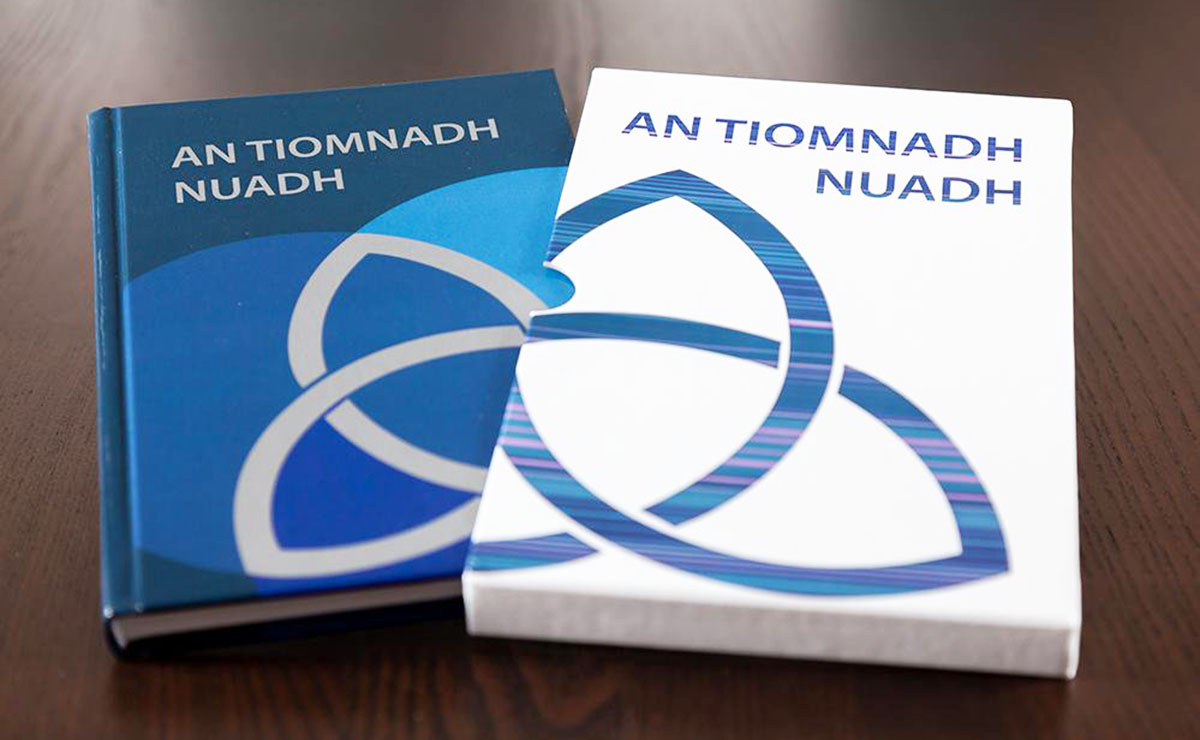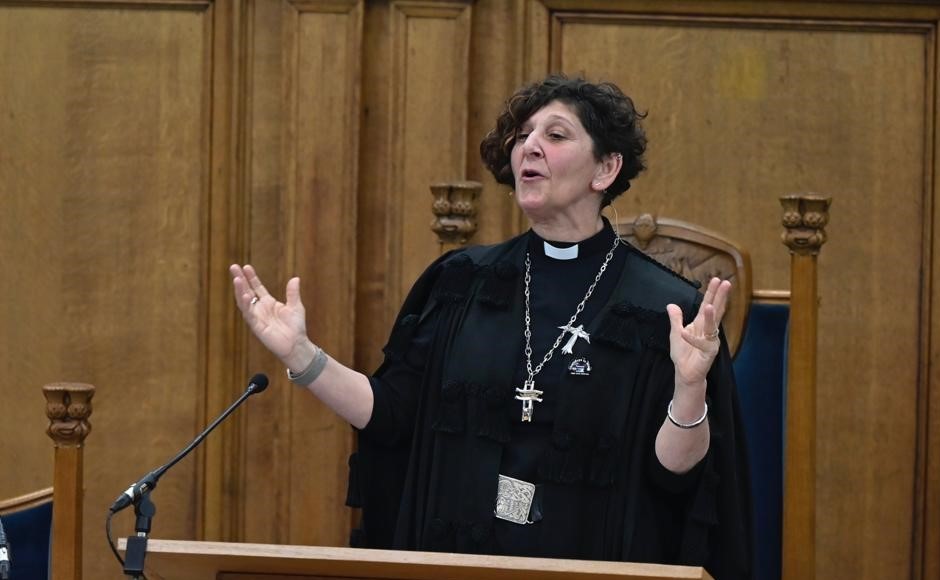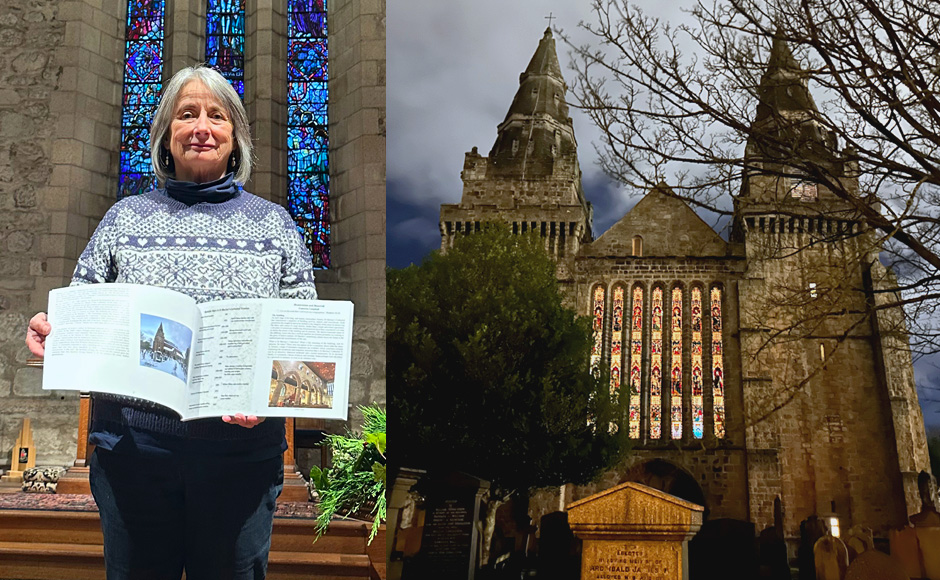New Bible resources for Gaelic speakers released
Published on 18 June 2019
The Scottish Bible Society, the Gaelic Books Council and the Church of Scotland's Gaelic group have announced new resources to help Gaelic speakers engage with the Bible and practice their Christian faith.

The Scottish Bible Society and the Gaelic Books Council have released a modernised Gaelic version of the New Testament and Gaelic audio versions of the four Gospels, while the Church of Scotland's Gaelic group has employed a Gaelic development officer to progress the work of the Kirk's Gaelic Language Plan over the next year.
The work of the Gaelic Group was approved during the General Assembly of 2018, with their report advising that they would be "exploring a number of different opportunities to receive funding for this work, both internal and external to the Church."
During this year's General Assembly the group announced they are delighted to have secured funding from Bòrd na Gàidhlig, an internal Church of Scotland grant, and from Action of Churches Together in Scotland (ACTS). The group also published a Gaelic version of the Thy Kingdom Come prayer diary.
A modern Gaelic translation of the New Testament
Members of the Kirk's Gaelic Group worked in conjunction with the Scottish Bible Society and the Gaelic Books Council to publish the newly translated version of the New Testament.
Rev John Urquhart, a Church of Scotland minister who is part of the team, said:
"It has been a decade since the Scottish Bible Society brought the translation team together to begin the New Testament project.
"Though we were drawn from different places and different churches, we all shared the same aim: that the Scriptures of the New Testament should be made available to Gaelic speakers in modern Gaelic, faithfully translated.
"Throughout our work, we kept our focus on fidelity to the Greek and the clarity of the Gaelic.
"The translators hope that putting the word of God into contemporary Gaelic will enable every person who reads it to hear God's voice speaking to them, and that through this they will come to know the peace and salvation that are to be found only through Christ.
"Our desire is that all praise, and honour, and glory, be given to God and to God alone."
Previously released in old Gaelic, this new version of the New Testament is designed as a more modern translation and aims to put the Word of God into contemporary Gaelic, enabling every person who reads it to hear God's voice speaking to them.
The ecumenical team of translators who worked on the project over a 10-year period included representatives from the Church of Scotland, the Free Church of Scotland and the Roman Catholic Church.
Gifted, committed and passionate translators
The New Testament was first translated into Scottish Gaelic by Rev James Stuart, minister of Killin, and published in 1767 – barely 20 years after the battle of Culloden. His son John, minister of Luss, was the main translator of the Old Testament, completed in 1801.
In recent years, the future of Gaelic in education and public life has received much attention as the language flourishes. However, the gap between everyday Gaelic in common use and the Gaelic in the most recent Bible edition continues to widen.
Elaine Duncan, Chief Executive of the Scottish Bible Society, said:
"It's been our pleasure to support a group of gifted, committed and passionate translators throughout this project.
"Their faithfulness, love of the Bible and handling of the Greek and Gaelic languages have been essential to the success of this project.
"We are thankful for the partnership and support of the Gaelic Books Council, and we pray that God's Word will be appreciated and understood more through providing the New Testament in the New Gaelic Translation."
Alison Lang, Director of the Gaelic Books Council, said:
"We are proud of the translation team who have worked to produce this New Testament in modern Gaelic, and delighted to have been able to support the Scottish Bible Society with this project.
"It is appropriate that this new translation is being published in the UNESCO International Year of Indigenous Languages, and we hope that churches, schools and individual readers will enjoy this beautiful book."
The work comes at a time of opportunity in the development of Gaelic. As the translators worked through the New Testament they were very much aware of the importance that this new translation will have for education and for the churches.
Alasdair Allan, MSP for the Scottish National Party welcomed the new translation in a motion lodged at the Scottish Parliament last month.
"The Parliament warmly welcomes the new translation of the New Testament, and praises the huge amount of work that has been put into this by Rev John Urquhart, Rev Ruairidh MacLean, Rev John Lincoln and the late Canon John Angus MacDonald over the course of ten years," Alasdair said.
"The Parliament also considers that this new publication represents one of the many ways in which the Gaelic world will be celebrating the International Year of Indigenous Languages in 2019."
The Gaelic NT New Translation is available to buy now online through the Scottish Bible Society and the Gaelic Books Council, or by calling 0141 337 6211.
What's next for the Gaelic Group?
As a result of the new funding awarded by both the Church of Scotland and Bòrd na Gàidhlig, a Gaelic development officer has been hired on a consultancy basis for one year in order to progress the Gaelic Group's work including the Gaelic Language Plan.
Duncan Sneddon, the current co-editor of Na Duilleagan Gàidhlig (the Gaelic supplement to Life and Work magazine), will take up the role in October.
The next steps for the Gaelic Group include a national conference considering the needs and ways of promoting Gaelic ministry and mission, as well as offering support and encouragement to Gaelic speaking ministers and anyone using Gaelic within the Church context. This follows the Next Steps conference in 2015 which looked at the place of Gaelic in Scotland's churches.
Also currently in the works is a Gaelic audio version of the four Gospels, which is due to be released in the autumn.
ACTS awarded the Church of Scotland's Gaelic Group a £9,000 grant towards the development the audio resources, as well as translations for inclusion in the recent Thy Kingdom Come global prayer initiative, including a Gaelic invitation recorded by Very Rev Dr Angus Morrison.
The project to develop the four Gospels into Gaelic has been managed by Nicola Thomas of the Gaelic College in Skye over the last nine months.
With voices sought from a wide range of Scottish church denominations, contributors are so far confirmed from Lewis, Skye, South Uist and Tiree.
The audio gospels are being recorded at Studio Ostaig, based at Sabhal Mòr Ostaig, the National Centre for Gaelic Language and Culture, and will be available in text format, audio, as well as for download as an audiobook.
More information on the audio translation project will soon be released on the Scottish Bible Society's Gaelic website, which also features a Gaelic Scriptures mobile app (available for download on Android and iOS).


